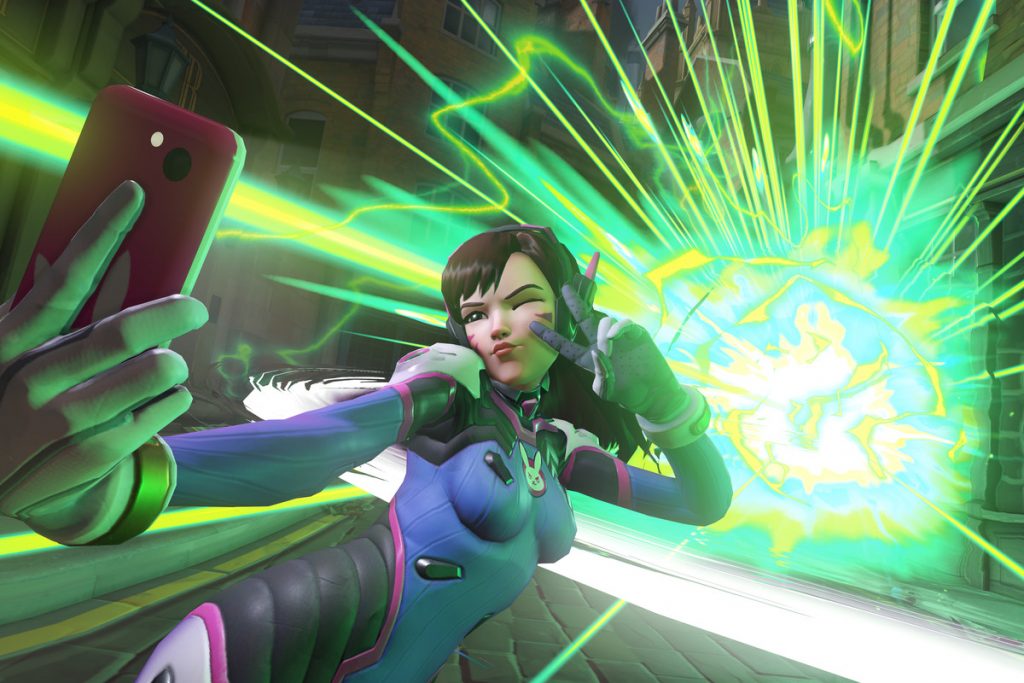
/cdn.vox-cdn.com/uploads/chorus_image/image/55949393/OW_Uprising_029.0.png)
When we talk about Overwatch, it often seems as though the game has two distinct quests. First, there’s Overwatch the intellectual property and popular shooter, which is supported by the cinematics, comics, and general lore of the setting. Overwatch is extremely successful in this capacity, garnering over 150 million engagements on Tumblr in just under a year. Overwatch has a fan following that dwarfs traditional media properties, and the game has broken out of the traditional 18-35 male demographic. The game and characters are astoundingly popular with women, queer people, and all sorts of folk you might not expect to see getting heavily invested in a FPS team shooter.
The second quest is, by far, the more difficult road for Blizzard. It is continually questioned whether Overwatch will be a successful esport, especially compared to the success Riot Games have had with the LCS. We’re starting to see Blizzard’s foundation for the Overwatch League emerge, with the seven founding teams being announced. Blizzard also recently announced details on the upcoming player signing window, and the benefits members of the Overwatch League will be afforded.
The Overwatch League has been garnering the lion’s share of the interest, especially from people invested in the long term success of the scene. The Overwatch League is certainly the most important part of Overwatch as an esport, but Blizzard seem to be thinking one step beyond it. Instead, it looks as though they’re positioning Overwatch esports as a lifestyle product.
Consider, for a moment, the announcements Blizzard made before we got the first Overwatch League details: First, they announced Overwatch Contenders, an ongoing tournament that looks like it’ll work similarly to the LCS Challenger system. Secondly, they announced the Overwatch Open Division, which allows Masters and above players to compete for a relatively small prize pool, but attention from sponsors and pro teams.
Add in the collegiate scene, and suddenly it becomes apparent that there are multiple tiers of competition for Overwatch players. As the Open Division announcement puts it, the first step begins with ranked play, which is open to everyone with enough time and energy. With this perspective, Blizzard’s competitive scene begins to look wide open, instead of confined to seven cities and big money investors.
/cdn.vox-cdn.com/uploads/chorus_asset/file/8943781/OW_SummerGames_McCreePose.png)
Blizzard aren’t the only people building Overwatch competitive infrastructure. There are local events hosting Overwatch tournaments put on by gaming clubs and organizations. In Toronto, I can head to the Raiders Esports Center on a weekend and find an open Overwatch tournament hosted by the Ontario eSports League. Facebook and Meetup.com both offer Overwatch fan meetups where people can play friendly matches, or discuss the game with one another.
We’re also seeing digital infrastructure being built around Overwatch and tournaments. RumbleMonkey is an online service for Hearthstone players that allows them to play in real money matches, inspired by similar services for poker players. CEO and Founder Jacob Rapoport plans to move into Overwatch: “With RumbleMonkey, [Overwatch is] an opportunity to create an experience for more casual players or people who aren’t trying to climb the ladder.”
By the time the Overwatch League finishes its first season and each city begins to host events, we may see a thriving Overwatch esports ecosystem that works at multiple levels, with basically anyone of sufficient interest having an option to play Overwatch in a competitive setting should they so choose.
Add in the live events in League cities, and it becomes possible to see how Overwatchesports could survive as a lifestyle product.
The problem is, of course, that there’s still so many details in the air about the Overwatch League. The Overwatch League serves as the most important vanguard in Overwatchesports efforts, and if it fumbles its launch, we’ll likely see ripples throughout the entire system.
As Overwatch esports continues to evolve, one of the biggest challenges will be monitoring its success as a game and intellectual property compared to its impact as an esport. While Overwatch has blown everyone away with its success in the first category, it still has a lot to prove in the second one.
Source:-.heroesneverdie




